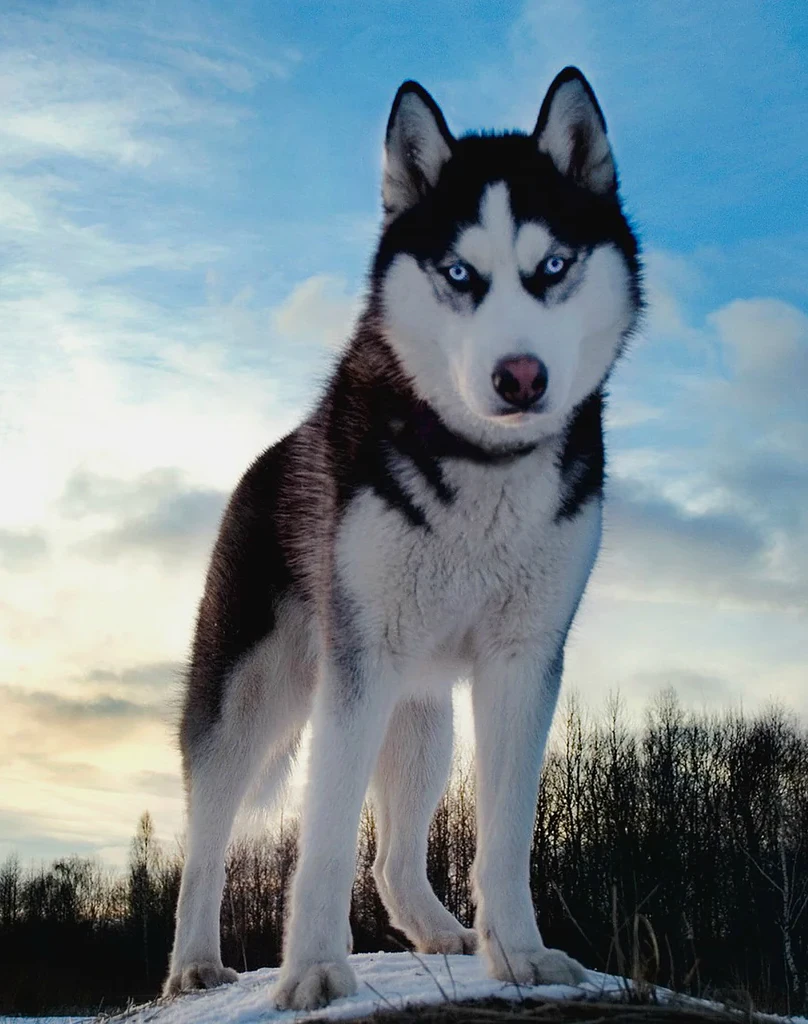Siberian Husky

Size: Medium
Coat: Double Coat, Medium
Trainability: May Be Stubborn
Activity: Energetic
Barking: Likes To Be Vocal
Summary:
The Siberian Husky is a medium-sized, high-energy breed with a striking appearance, including its thick double coat, erect ears, and expressive blue or multicolored eyes. Known for their endurance and strength, Huskies were originally bred to pull sleds in harsh Arctic conditions, making them naturally suited to outdoor activities and requiring a lot of physical activity. They are friendly, outgoing, and highly intelligent, but they also possess a strong independent streak. Known for their playful nature and affectionate demeanor, Huskies are often good with children and other pets, though their high energy levels require a dedicated owner.
Care:
Siberian Huskies require regular grooming to manage their thick double coat, which sheds heavily, particularly during shedding seasons (spring and fall). Brushing several times a week is essential to prevent mats and reduce shedding. Their grooming needs are more intense during the shedding seasons, but they generally don't need much maintenance outside of that. Huskies are an active breed and need substantial exercise to stay healthy and happy. Daily walks, runs, and opportunities for off-leash play (in secure areas) are crucial for their physical and mental well-being. Due to their high intelligence, they also require mental stimulation to prevent boredom, which can lead to destructive behavior. Training should be consistent and positive, as Huskies can be stubborn and independent, though they respond well to engaging, reward-based methods. Huskies may also be prone to certain health issues, including hip dysplasia and eye conditions, so regular veterinary check-ups are important.
Conditions:
Huskies thrive in environments with ample space for running and playing, such as homes with large yards or access to outdoor activities. They are best suited for colder climates due to their thick coat, which can cause overheating in hot weather if not properly managed. Huskies can adapt to warmer climates but may require additional care, such as access to shade and fresh water, and should avoid excessive heat. They are highly social dogs that do best in active households where they can engage in daily exercise and be involved in family activities. Huskies are generally good with children and other dogs, though they may have a strong prey drive and should be supervised around smaller pets. Early socialization and training are essential to help manage their independent nature and energy levels.
Back